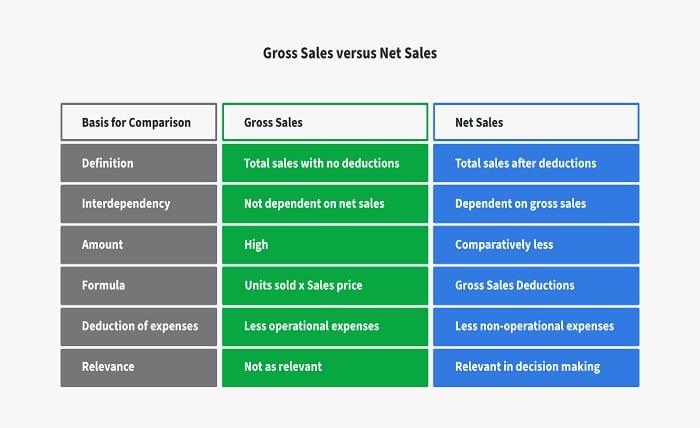Sales Are Equal To: Understanding the Dynamics and Impact

Sales play a pivotal role in the success and growth of businesses across industries. They serve as a measure of a company’s ability to market and sell its products or services effectively. This article explores the dynamics and impact of sales, highlighting the key factors that influence sales outcomes, the various sales channels, the importance of sales forecasting and analysis, effective sales strategies, and the overall impact of sales on business success.
The Ccept of Sales
Sales refer to the exchange of goods or services for monetary value. It involves the process of convincing potential customers to make a purchase, thereby generating revenue for the business. Successful sales rely on understanding customer needs, effectively communicating product value, and building strong relationships with buyers.
Key Factors Affecting Sales
Product Quality and Features
The quality and features of a product greatly influence its sales performance. Customers are more likely to make a purchase if they perceive the product to be of high quality and if it offers unique features or benefits. A product that fulfills customer expectations and provides value will have a competitive edge in the market.
Competitive Pricing Strategies
Pricing is a critical factor that directly impacts sales. Businesses need to set prices that align with market demand and competition while considering factors such as production costs, profit margins, and perceived value. Effective pricing strategies can attract customers and drive sales volume.
Effective Marketing and Advertising
Marketing and advertising campaigns play a vital role in creating awareness and generating interest in a product or service. By reaching out to the target audience through various channels, businesses can influence purchasing decisions and increase sales. Utilizing compelling messaging, engaging visuals, and targeted promotions can significantly impact sales outcomes.
Customer Service and Experience
Exceptional customer service and positive experiences contribute to customer satisfaction and loyalty. A satisfied customer is more likely to make repeat purchases and recommend the product or service to others, thereby increasing sales. Businesses should focus on providing personalized support, addressing customer concerns promptly, and continuously improving the overall buying experience.
Sales Channels and Distribution
Sales can occur through various channels, each catering to specific customer preferences and market dynamics. The following are some common sales channels:
Traditional Retail
Traditional retail involves selling products through physical stores or outlets. This channel allows customers to interact with the product physically, seek assistance from sales staff, and make immediate purchases. Traditional retail is still prevalent and can be advantageous for products that require demonstration or personalized service.
E-commerce and Online Platforms
E-commerce and online platforms have revolutionized sales by providing a convenient and accessible way for customers to browse and purchase products online. This channel offers a vast reach, enabling businesses to target customers globally. It requires an optimized online presence, user-friendly interfaces, secure payment options, and efficient logistics for successful sales.
Direct Sales and B2B
Direct sales involve selling products directly to customers without intermediaries. This approach allows for personalized selling, relationship building, and better control over the sales process. Business-to-business (B2B) sales focus on selling products or services to other businesses. It requires a strategic approach, customized solutions, and effective communication to build long-term partnerships.
Sales Forecasting and Analysis
Sales forecasting and analysis are crucial for businesses to make informed decisions and optimize their sales strategies. The following factors contribute to effective sales forecasting:
Historical Data and Trends
Analyzing historical sales data helps identify patterns, seasonal fluctuations, and trends. This information enables businesses to anticipate future sales volumes and plan accordingly. By considering factors such as previous sales performance, market conditions, and external influences, businesses can make more accurate sales forecasts.
Market Research and Consumer Insights
Conducting market research and gathering consumer insights provide valuable information about target audiences, their preferences, and buying behaviors. Understanding customer needs and expectations helps tailor sales strategies to specific market segments, increasing the chances of success.
Statistical Models and Data Analytics
Leveraging statistical models and data analytics allows businesses to analyze vast amounts of data to gain meaningful insights. By employing techniques such as regression analysis, correlation studies, and predictive modeling, businesses can uncover relationships, identify growth opportunities, and refine their sales strategies for optimal performance.
Sales Strategies and Techniques
Successful sales require well-planned strategies and effective techniques. Here are some key approaches:
Relationship Building and Networking
Building strong relationships with customers and key stakeholders is vital for long-term success. Sales professionals should focus on understanding customer needs, providing personalized solutions, and maintaining regular communication. Networking with industry peers and influencers can also help expand business opportunities and generate leads.
Targeted Marketing Campaigns
Segmenting the target audience and developing tailored marketing campaigns can significantly improve sales outcomes. By understanding the demographics, preferences, and pain points of different customer segments, businesses can craft compelling messages and offers that resonate with specific groups, increasing the likelihood of conversions.
Sales Funnel Optimization
Optimizing the sales funnel involves streamlining the customer journey from initial contact to the final purchase. This includes optimizing lead generation, nurturing leads, providing relevant information, and offering incentives or discounts to encourage conversions. Continuous evaluation and refinement of the sales funnel can enhance overall sales performance.
The Impact of Sales on Business Success
Sales have a profound impact on the overall success of a business. Here are some key areas where sales play a crucial role:
Revenue Generation and Profitability
Sales directly contribute to revenue generation, which is essential for business sustainability and growth. Higher sales volumes lead to increased revenue, allowing businesses to invest in expansion, research and development, and other strategic initiatives. Strong sales performance also enhances profitability by maximizing revenue while managing costs effectively.
Market Share and Competitive Positioning
Successful sales help businesses capture a larger market share and gain a competitive advantage. By outperforming competitors in terms of sales volume and customer acquisition, businesses can establish themselves as industry leaders. A larger market share provides opportunities for increased brand recognition, economies of scale, and greater bargaining power with suppliers.
Brand Reputation and Customer Loyalty
Positive sales experiences contribute to building a strong brand reputation and fostering customer loyalty. Satisfied customers are more likely to become brand advocates, recommending the product or service to others. Word-of-mouth recommendations and positive reviews can significantly impact sales by attracting new customers and increasing customer retention rates.
Conclusion
Sales are an integral part of any business, and understanding the dynamics and impact of sales is essential for long-term success. By focusing on key factors affecting sales, leveraging various sales channels, utilizing sales forecasting and analysis, employing effective sales strategies, and recognizing the overall impact of sales on business success, companies can enhance their sales performance and achieve their growth objectives.



